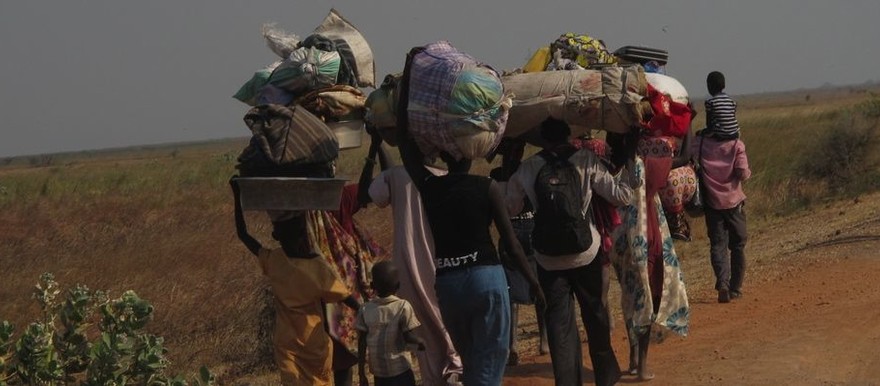The author is the UK Minister for Africa. Here he reflects on the crisis in South Sudan, one year after the outbreak of conflict.
Today marks the anniversary of the start of the conflict in South Sudan. I sincerely hope that all sides allow this day to pass off peacefully and use it to reflect on the cost of the conflict.
Despite a year of suffering the fighting continues and the humanitarian situation remains dire. More than 1.9 million people have been forced to abandon their homes and nearly 500,000 of them have fled the country. At present, nearly 100,000 people shelter in UN camps across the country. Famine has only narrowly been averted in 2014 and remains a real possibility in 2015. The economy has been badly affected leaving people struggling to make ends meet.
Widespread human rights abuses and violations have taken place, including unprecedented levels of sexual violence. Meanwhile, civil rights are constricting leaving many South Sudanese unable to discuss the crisis that engulfs them. South Sudan’s reputation around the world has been left in tatters and is a far cry from the hope and aspirations of the independence referendum of 2011.
South Sudan’s leaders cannot allow the crisis to continue. The people of South Sudan have no desire to live their lives under such circumstances. It’s time to end the conflict once and for all through peaceful means.
The Inter-Governmental Authority on Development’s (IGAD) has worked tirelessly to secure a peace agreement. But the situation only makes clear how far the country remains from peace and stability. There is a desperate need for South Sudan’s leaders to recognise the appalling impact of the conflict on their citizens. Leaders on all sides urgently need to demonstrate real statesmanship and find compromises to end the conflict.
Both the government and opposition must implement their commitments to cease all fighting, implement the Cessation of Hostilities Agreement and engage seriously with the IGAD-led peace process to find an agreement that ends the conflict. For an agreement to last it must be truly representative and serve the people of South Sudan. It must provide accountability and look for a long term solution to the root causes of the country’s divisions that were all too easily exposed one year ago.
This anniversary also makes clear that it is time for the region and international community to redouble their efforts to help bring an end to the crisis. The region has already made clear that it will apply sanctions if the fighting does not stop. The UK stands ready to support action on sanctions, including at the UN Security Council.
The UK has been, and remains, a strong supporter of South Sudan and its people. Our objective is a stable, peaceful and prosperous South Sudan. The British Government is one of the largest humanitarian donors in South Sudan having committed US$235 million since the start of the crisis. The threat of famine this year has been avoided due to support from the UK and International Community. And whilst we have ramped up humanitarian support we continue to invest in South Sudan’s long term future. Promoting human rights, strengthening accountability and tackling sexual violence against women and girls remain high on our agenda.
This man-made crisis has gone on too long. It has devastated peoples’ lives and has drained valuable resources that should be invested in the country’s long term development. Those in leadership positions must take responsibility for this, stop the fighting, build a lasting peace and provide humanitarian assistance to their people.South Sudan has the potential to be a prosperous, stable country. Only peace will allow it to become so. It is my sincere hope that this anniversary is used as a catalyst for change. That South Sudan’s leaders secure peace and start to build a prosperous and inclusive country; the country that South Sudan’s people want and truly deserve.
The views expressed in ‘opinion’ articles published by Radio Tamazuj are solely those of the writer. The veracity of any claims made are the responsibility of the author, not Radio Tamazuj.




